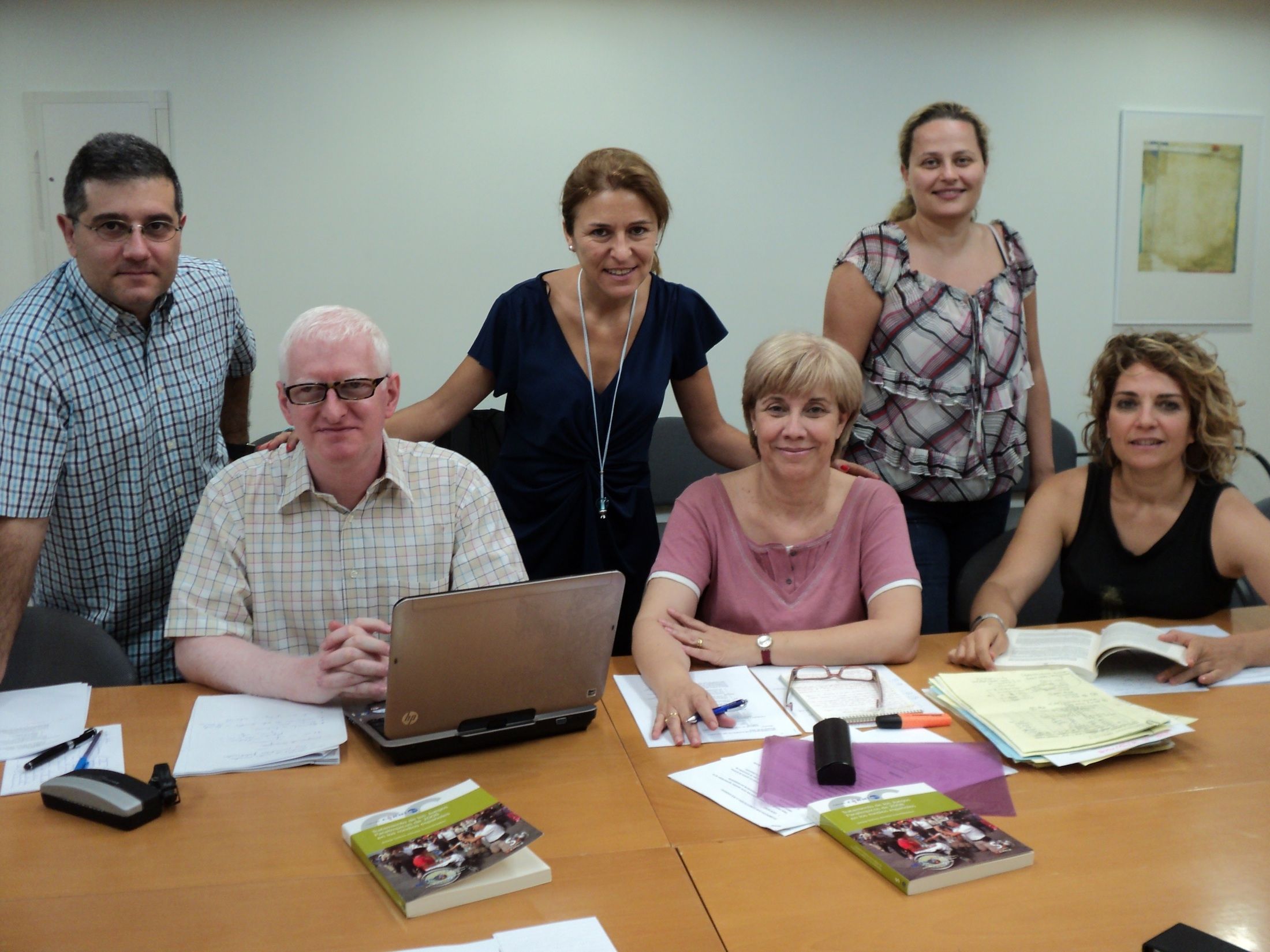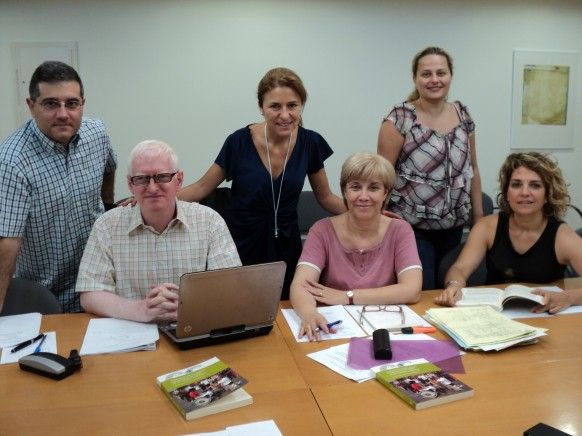The Research Group for Disability and Communication (GIDYC) at CEU-UCH has just published, under the direction of Prof. Josep Solves and the research support of IDEAS SANTANDER, a book containing the results from their study into the 2008 Beijing Paralympic Games
The International Paralympics Committee’s Sports Sciences Commission approved the research project directed by Dr. Josep Solves, professor at University CEU Cardenal Herrera in Valencia, regarding the Spanish press coverage of the upcoming London 2012 Paralympic Games which will be held between 29th August and 9th September. The study, which was developed by the Research Group for Disability and Communcation (GIDYC) at CEU-UCH, will analyze the national Spanish press coverage – radio, television, etc. – with the cooperation of the Spanish Paralympic Committee.
CEU-UCH is the only Spanish University whose research is sponsored by the International Paralympic Committee. At an international level only two projects approved by this committee have chosen to study paralympism from a Social Sciences perspective as this organization tends to mainly accept research projects centred around the relationship between physical education and sporting performance instead.

Publication of Results
The previous study undertaken by this research group regarding the 2008 Beijing Olympic Games has just been published by the Spanish Representative Committee for the Disabled (CERMI) and the Spanish Paralympic Committee in the publication, Ediciones Cinca, with the research support of IDEAS SANTANDER. Under the coordination of Josep Solves, Inmaculada Rius, María Teresa Mercado, Anunciación Ramírez and Àngels Àlvarez, teachers of the CEU-UCH Humanities and Communication faculties, and Sebastián Sánchez from the University of Valencia, also took part in the GIDYC study at University CEU Cardenal Herrera.
Esta primera investigación ha concluidos que los medios ofrecieron una visión integradora de los Paralímpicos de Pekín 2008, al contemplar el acontecimiento como un ítem más en la agenda de la actualidad, sin tender a destacar el hecho de la discapacidad, ni en el uso del lenguaje, ni en el tratamiento de las imágenes. Destaca también el excepcional tratamiento otorgado por la prensa deportiva, especialmente la regional, que dedica más espacio y construye un relato más cercano y personalizado. Un tipo de relato que los autores de la investigación han definido como “épico periodístico”, basado en la construcción de héroes a partir de las historias de vida de muchos atletas. This initial investigation analyzed the language and images used and therefore concluded that the press had offered an integrated view of the 2008 Beijing Paralympic Games treating events more as a news item rather than highlighting the athletes’ disabilities. The study also noted the exceptional coverage of the sports media, especially the regional coverage which was more intimate and personalized. The study authors were also able to define types of new stories used in the coverage such as “epic journalism”, when journalists would create heroes out of the athletes using their life stories.
However, this exceptional coverage is contrasted with the poor, or sometimes non-existant, coverage of the Games on the national channels, except for TVE, and the mainly impersonal radio coverage but the communication strategy of the Spanish Paralympic Committee is highlighted very positively by the authors of this study.
Idols, records and dramatization of the Idols’ efforts
The analysis, which the CEU-UCH researchers will develop further with the upcoming 2012 London Paralympic Games, will compare the general ideas associated with disability and sport with those ideas transmitted by the Spanish press in their coverage of the Games in order to determine the differences. The research will comprise of an initial quantitive analysis of the time dedicated to the Paralympic Games compared with the statistics of the Olympic Games thanks to the collaboration of the Spanish Olympic Committee (COE).
The second part of the study will consists of an analysis of the content and discourse of the Spanish media. It will also look at the presence of certain aspects in news stories such as the construction of idols, the value of competitiveness, the concept of success and failure in sport, the achievement of records and the tendency to dramatize the efforts of the disabled sportsmen.
Manual of good practice
The results of this second study, which will be presented six months after the Paralympic Games in March 2013, will suggest ways in which the Spanish media can improve their media coverage of disability and reduce the risks of social exclusion derived from prejudices and stereotypes about disabled people. The final objective for GIDYC is the drawing-up of a manual or guide for good practice regarding the media’s treatment of disability.
Also it is expected that it will provide associations of disabled people with the tools and recommendations necessary to improve their relations with the media and understand their work routines better.







